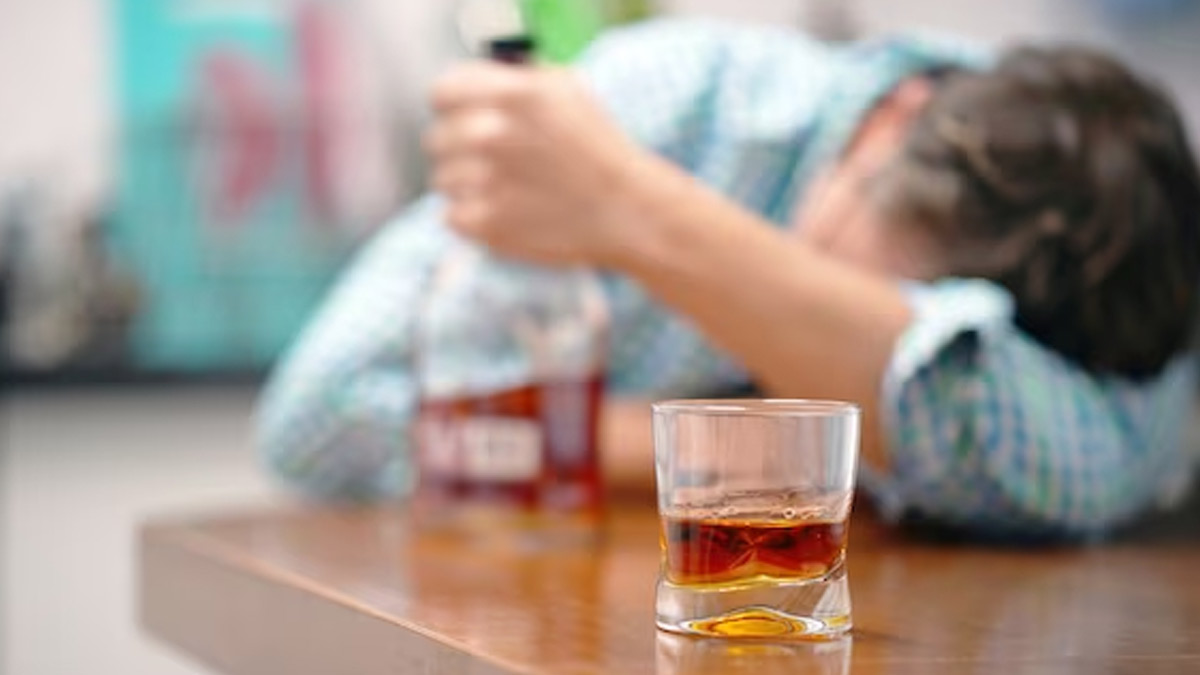
Alcohol is known for being hazardous due to its potential to impair judgement, coordination, and cognitive function. In addition, prolonged or excessive alcohol consumption can lead to addiction, liver damage, and become a significant risk factor for Cardiovascular Diseases (CVDs), increasing the likelihood of heart attacks, and strokes. We spoke to two experts to not only understand the link between long-term alcohol intake and stroke, but to also find strategies to limit drinking
How Alcohol Consumption Can Affect The Body

Dr A Ravikanth, Senior Cardiologist, Kamineni Hospitals, Hyderabad, says, “Over time, excessive alcohol consumption can lead to the onset of chronic diseases and other severe issues, including elevated blood pressure, heart disease, stroke, liver ailments, and digestive disorders.”
A study published in the Journal Current Atherosclerosis Reports describes alcohol consumption as a modifiable risk factor for CVD. "Excessive alcohol consumption (more than 60 g/day in men and more than 40 g/day in women) is a well-known contributor to mortality and burden of CVDs," the study adds.
However, the study findings also share observations of a lower risk of coronary heart disease and myocardial infarction among moderate drinkers as compared to abstainers, even though ambiguity remains on the effect of alcohol on other CVDs and all-cause mortality.
In addition, Dr Ravikanth also suggests an association between alcohol and various cancers, such as those affecting the breast, mouth, throat, oesophagus, voice box, liver, colon, and rectum.
The National Toxicology Program of the US Department of Health and Human Services in its Report on Carcinogens, includes consumption of alcoholic beverages as a known human carcinogen.
Additionally, alcohol contributes to learning and memory impairments, potentially leading to conditions like dementia and poor academic performance, notes the doctor, adding, “Mental health problems, including anxiety and depression, can also arise due to excessive drinking.”
Excessive Drinking And Stroke Risk

Alcohol can cause strokes by promoting high blood pressure, disrupting normal heart rhythms, and increasing the formation of blood clots. These factors collectively raise the risk of both ischemic and hemorrhagic strokes, where blood flow to the brain is compromised, leading to potential brain damage or death.
According to a study published in the Journal Neurology, high levels of alcohol intake is consistently linked to all stroke, ischemic stroke, and Intracerebral Haemorrhage (ICH).
“Moderate intake was associated with all strokes and ICH but not ischemic stroke. Low alcohol intake was not associated with stroke overall, but there were regional differences; low intake was associated with reduced odds of stroke in Western Europe/North America and increased odds in India. Wine consumption was associated with reduced odds of all stroke and ischemic stroke but not ICH. The magnitudes of association were greatest in those without hypertension and current smokers,” the study adds.
Also Read: More Than 50% People With Autoimmune Disease Experience Depression And Anxiety: Study
How To Stop Drinking As Per Expert

For those looking to limit and eventually stop alcohol intake, Dr Gautami Nagabhirava, MD Psychiatry, Senior Neuropsychiatrist, Kamineni Hospitals, Hyderabad, shares a few strategies to do so. These include:
- Recognise the need for change and accept the impact of drinking on your life.
- Define clear and achievable goals, such as reducing consumption or quitting entirely.
- Reach out to friends, family, or support groups for encouragement and accountability.
- Develop a strategy to manage triggers and cravings, and find healthy alternatives.
- Surround yourself with positive influences and seek professional guidance if needed.
- Learn healthier ways to manage stress, emotions, and difficult situations.
- Adopt a healthier routine, including exercise, balanced nutrition, and sufficient sleep.
- Identify situations, places, or people that trigger your drinking and try to avoid them.
- Replace drinking with enjoyable and fulfilling activities.
- Keep track of your achievements and setbacks to stay motivated and adjust your plan as needed.
Bottomline
Alcohol consumption is harmful for the body in many ways. The key is to slowly cut down on drinking and stop it completely over time. Seeking help from family and friends, resorting to professional advice from a doctor, therapist, or counsellor is essential for a personalised and effective approach.







